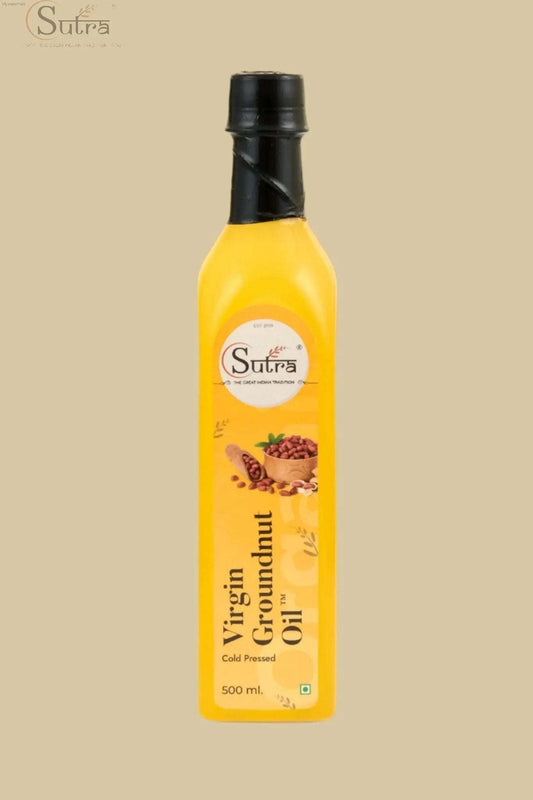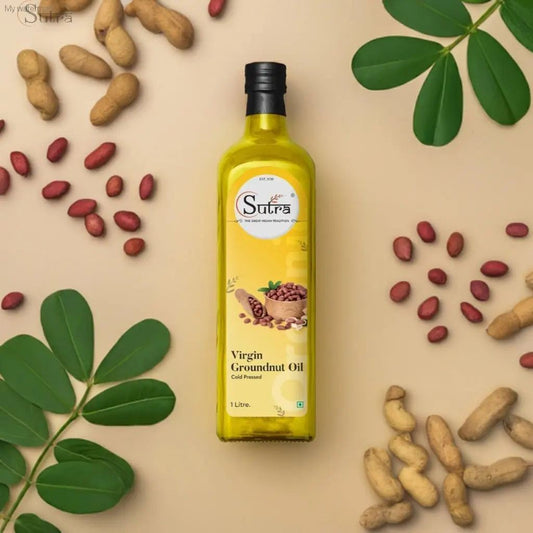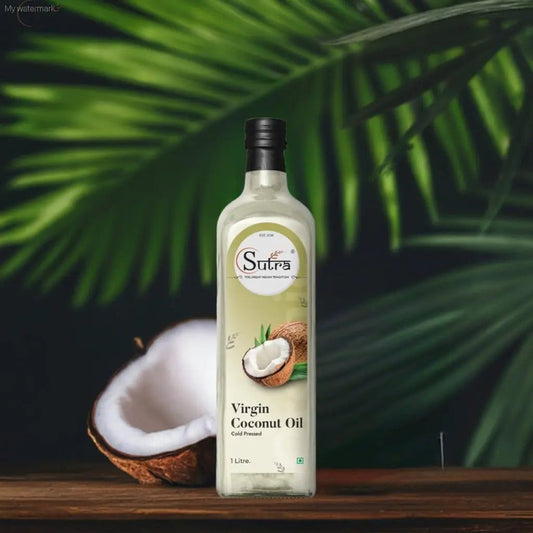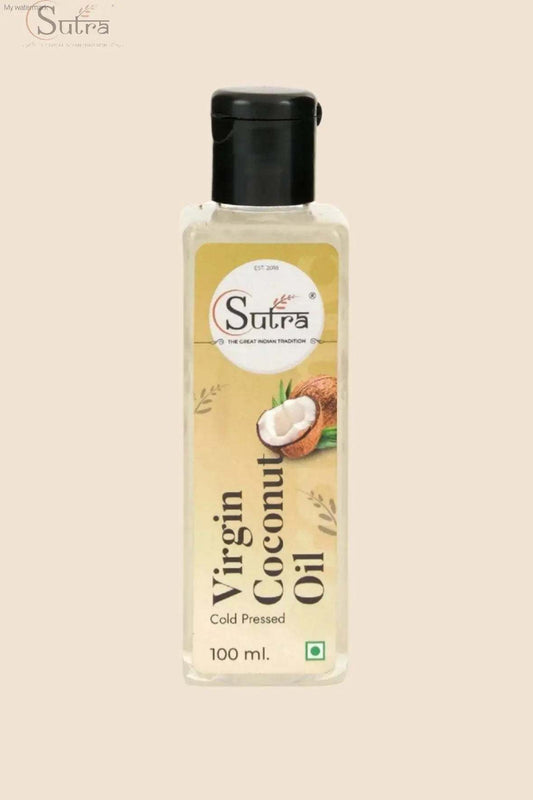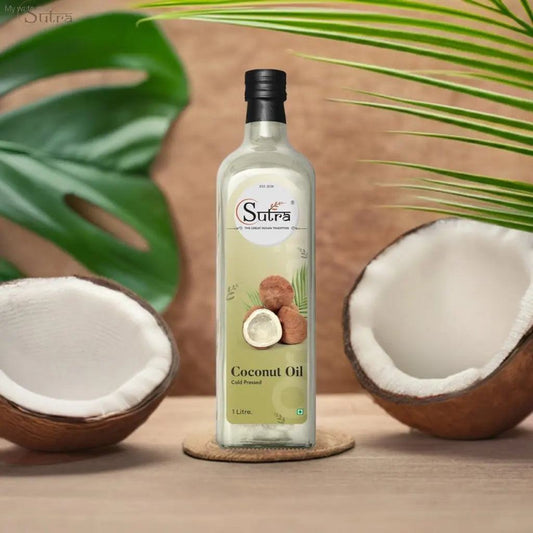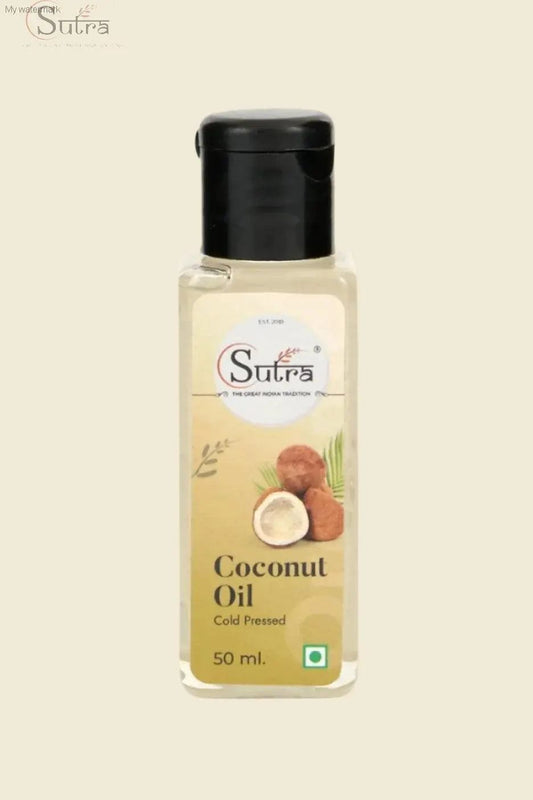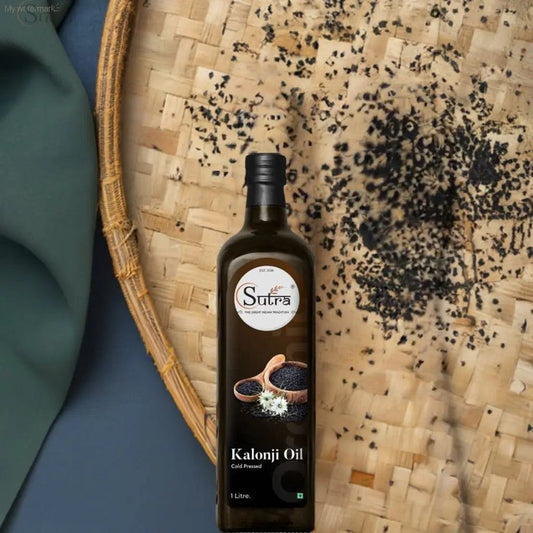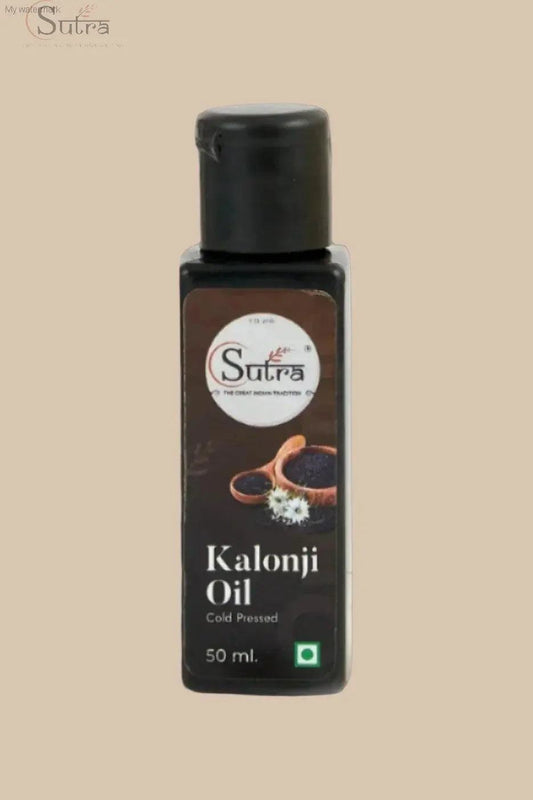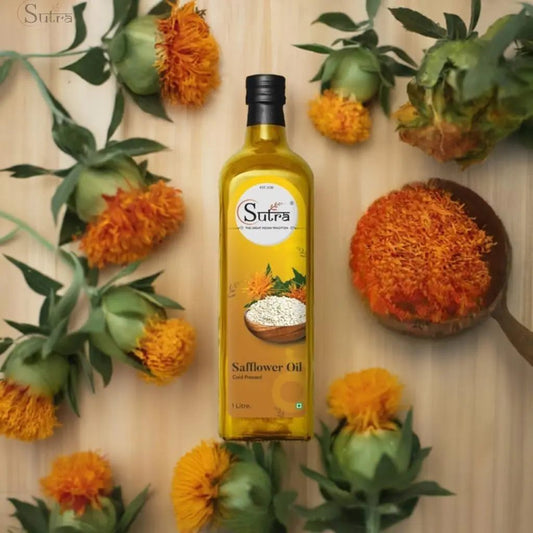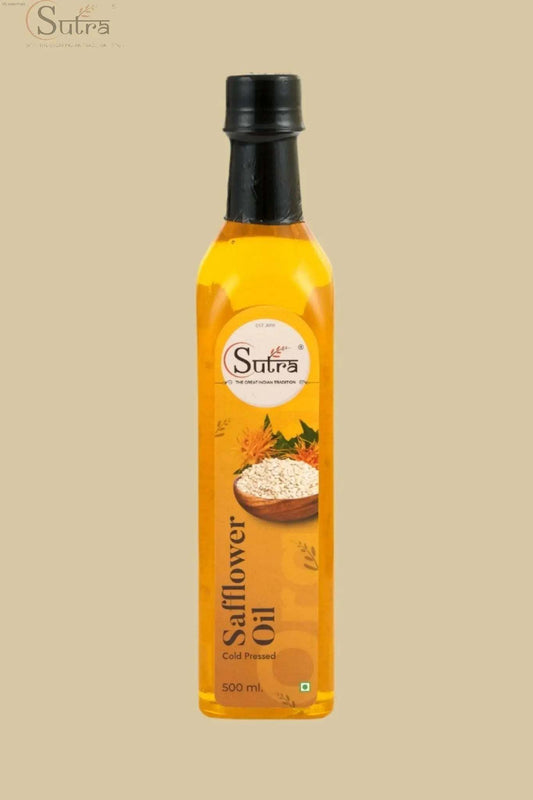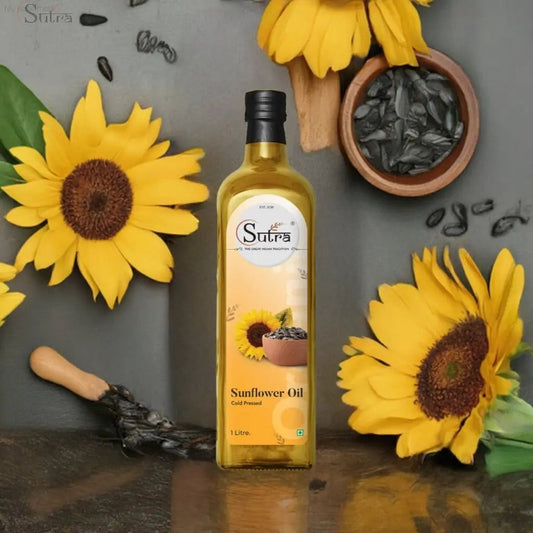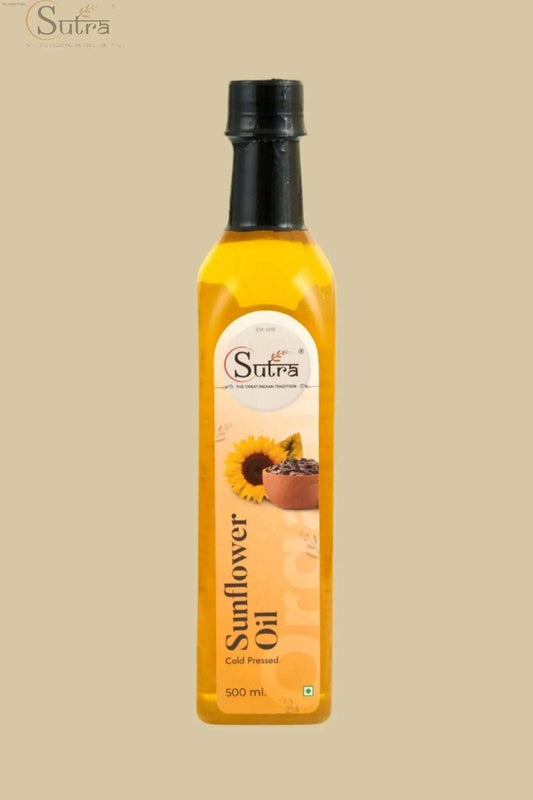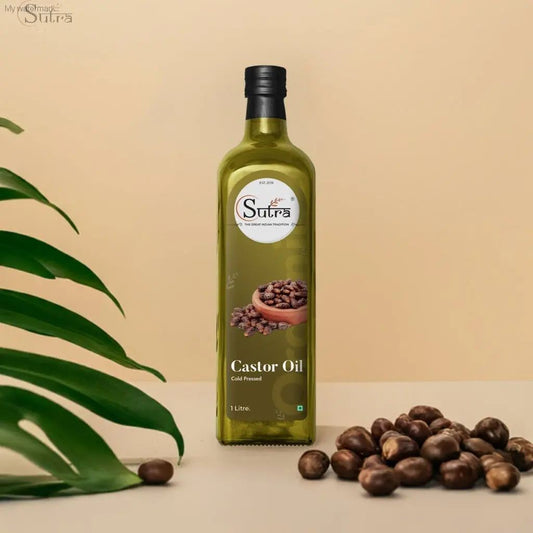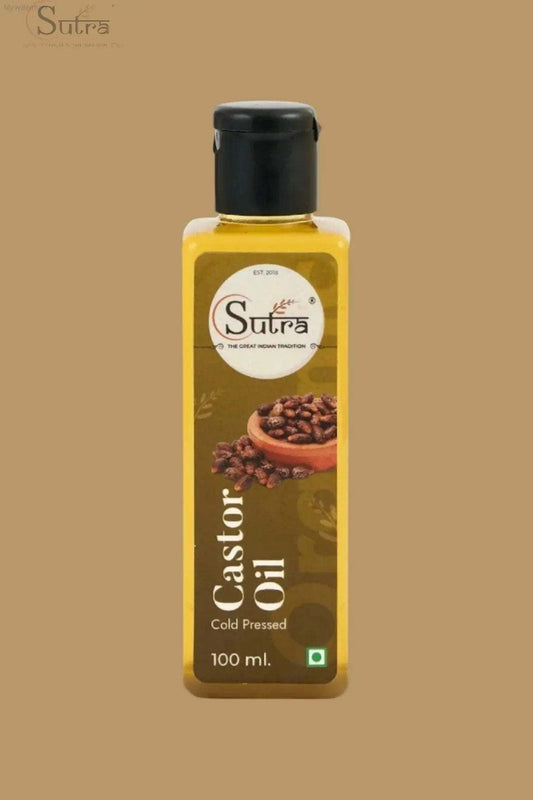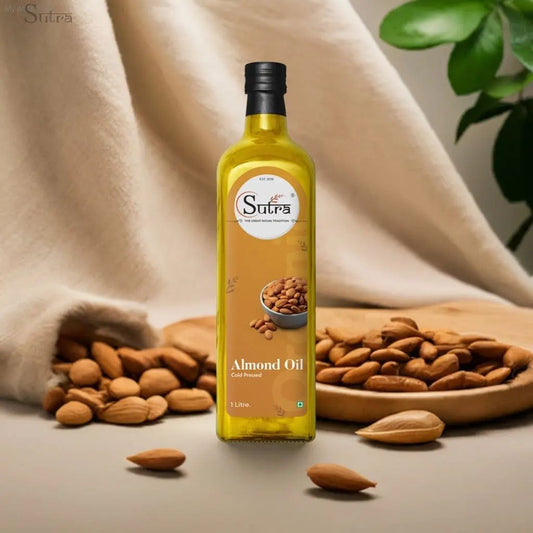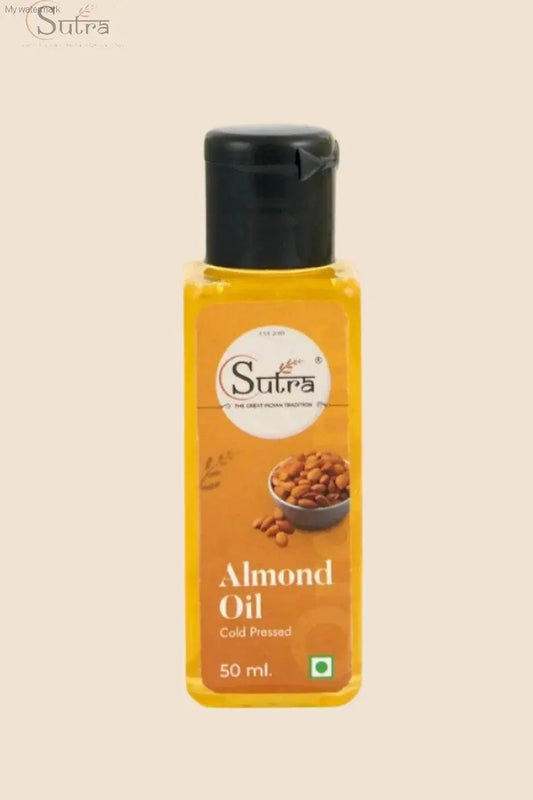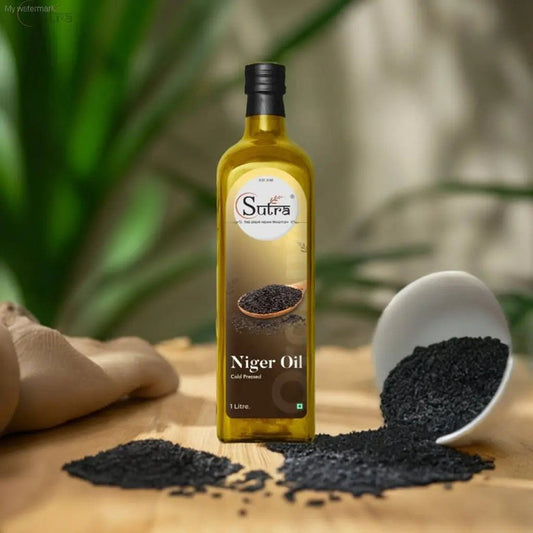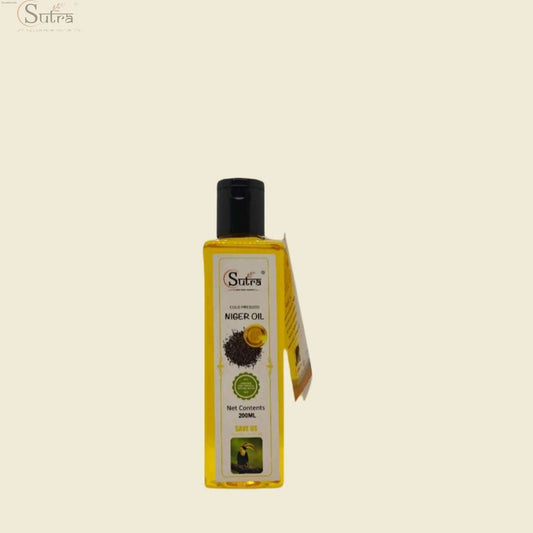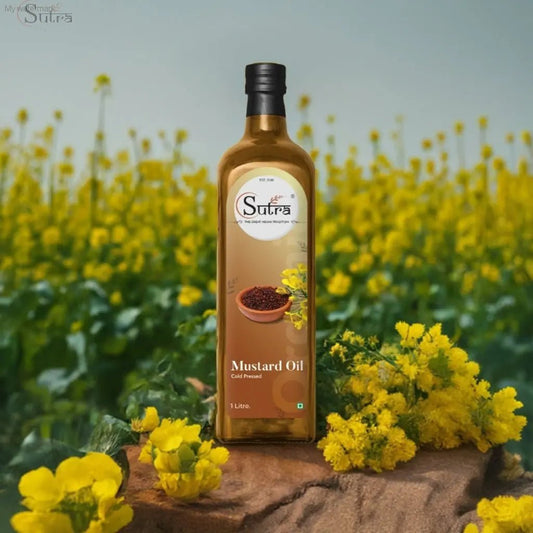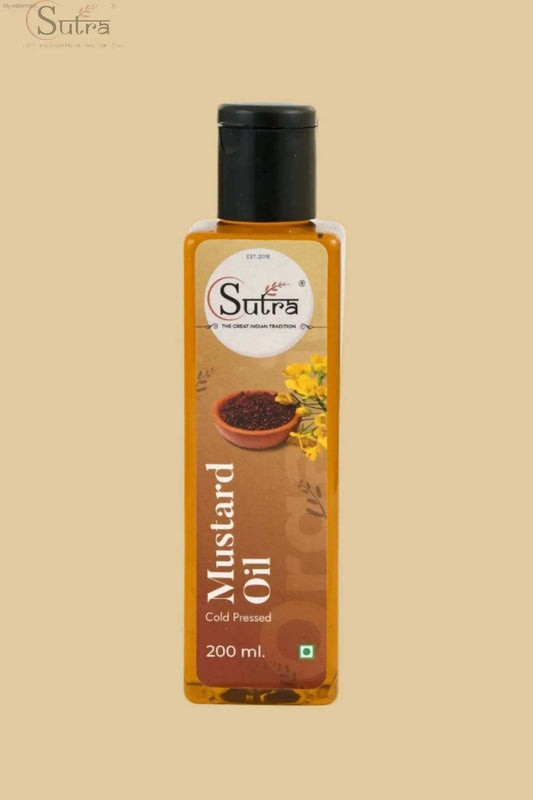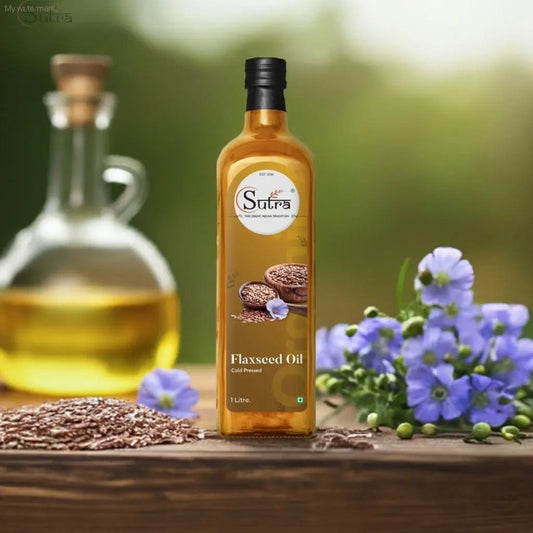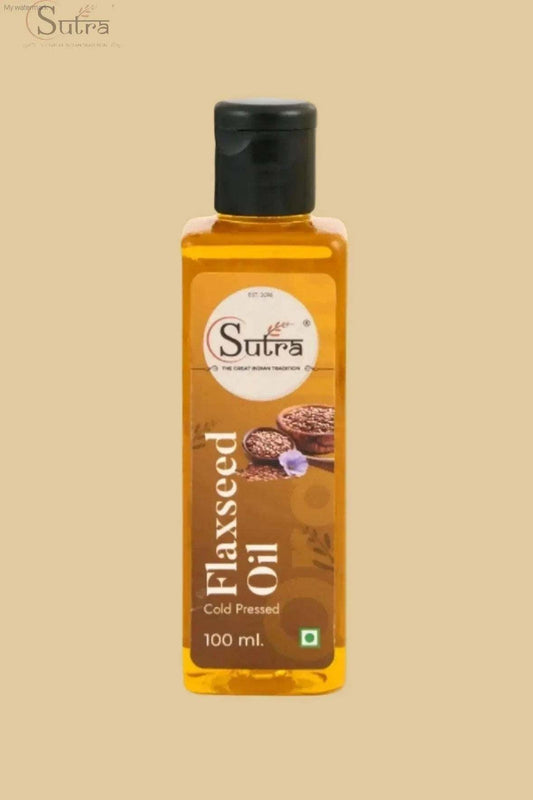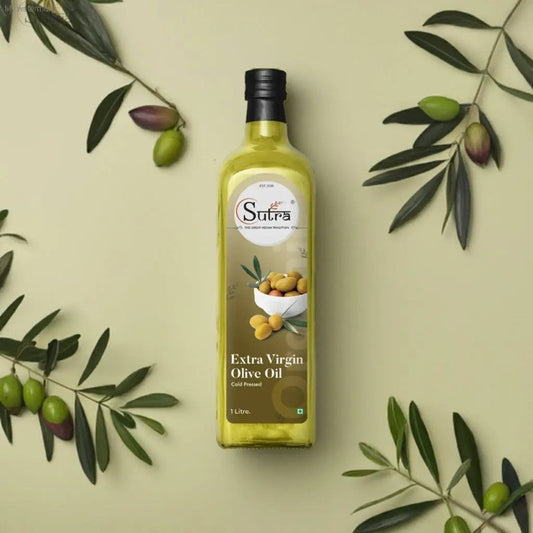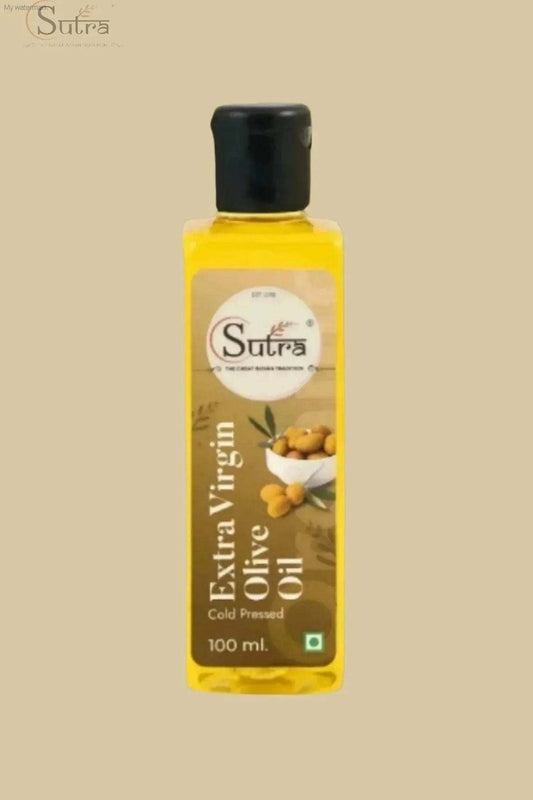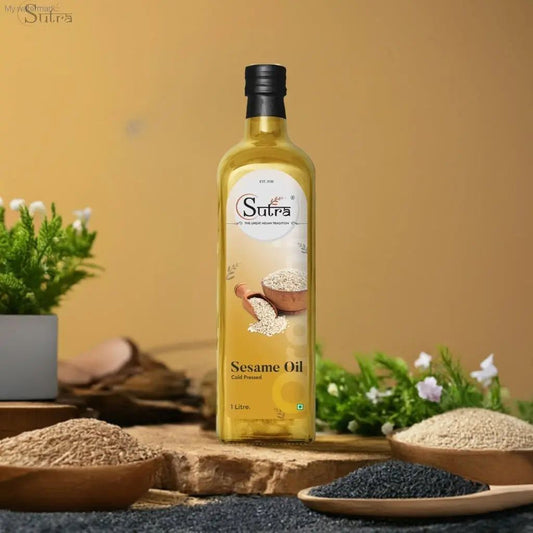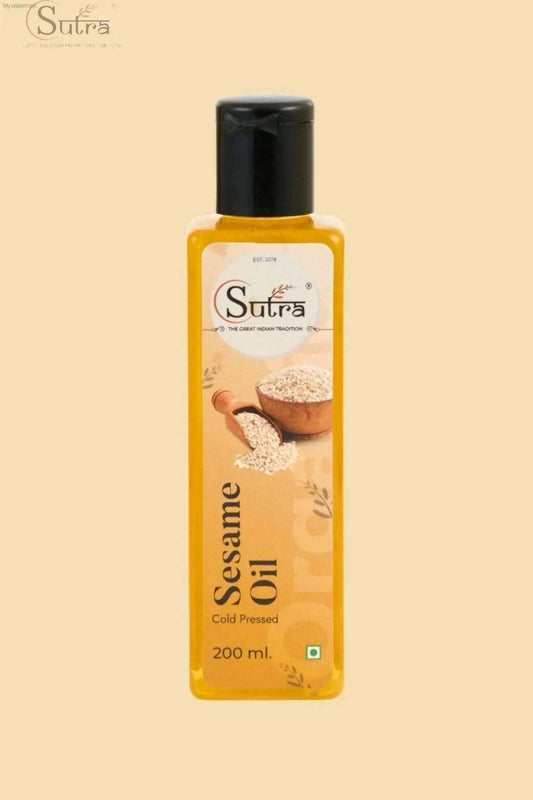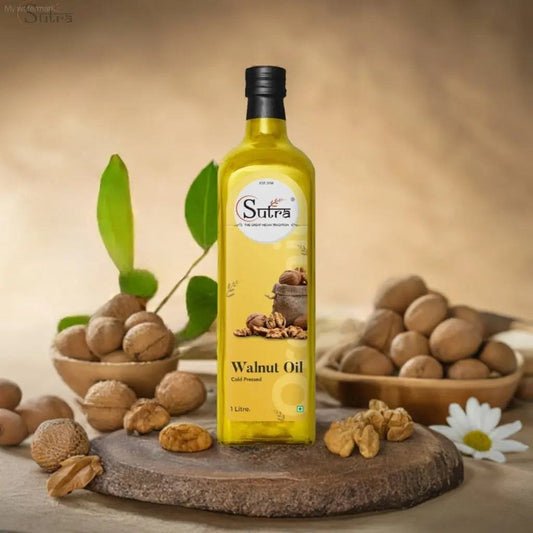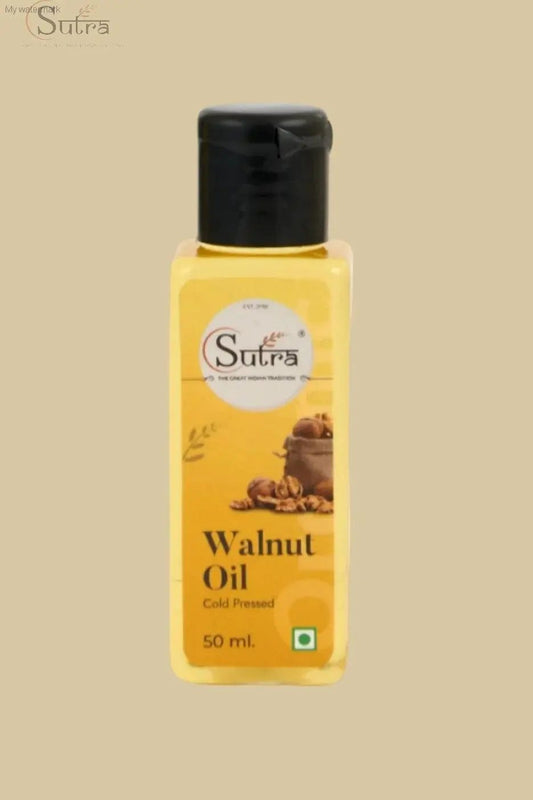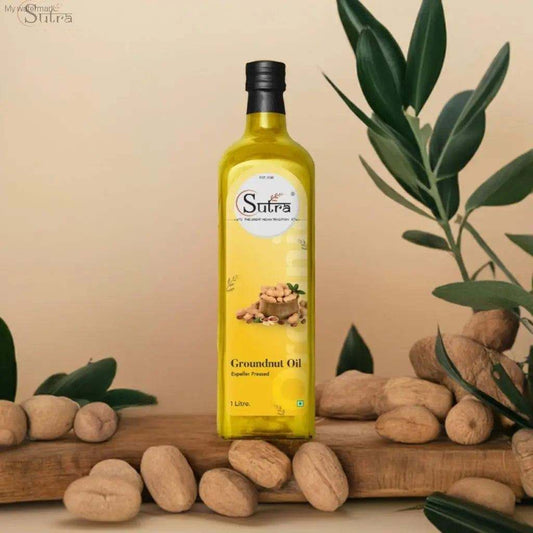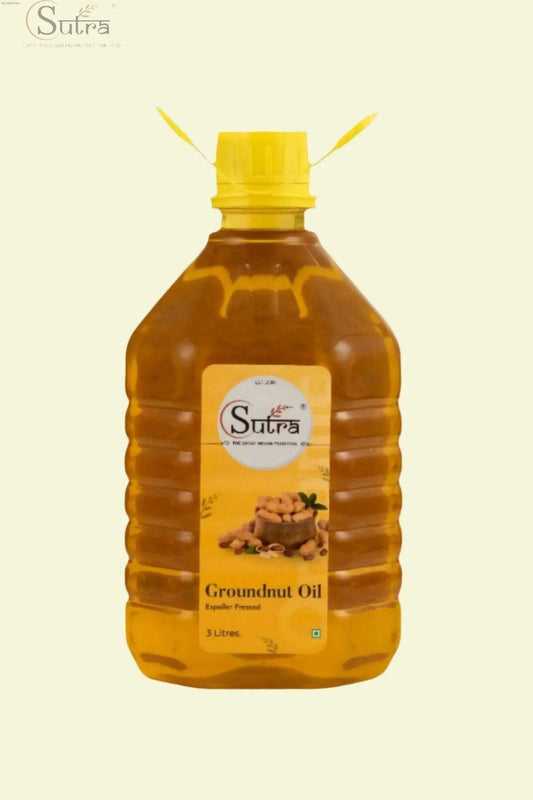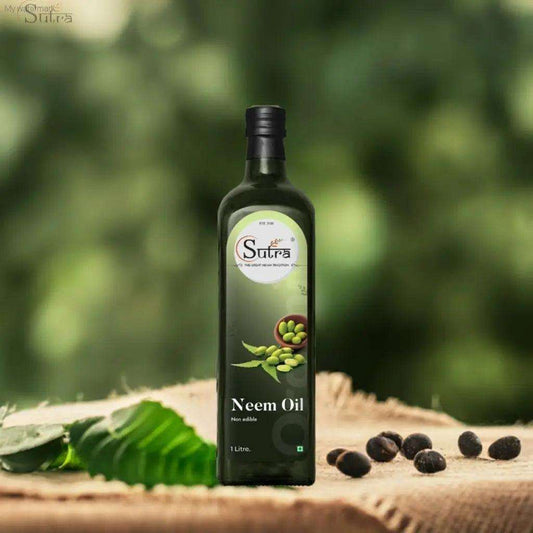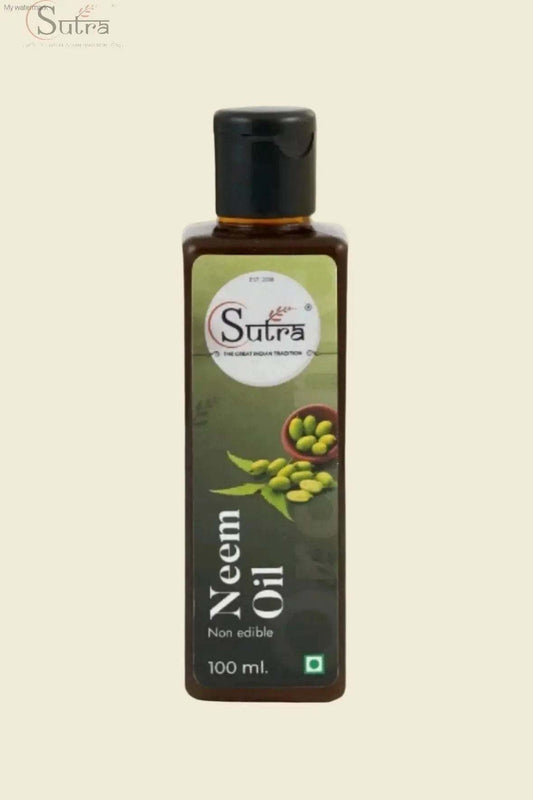Cold-Pressed Peanut Oil – Pure, Chemical-Free Groundnut Oil Extracted by Expeller
Cold-Pressed Peanut Oil, also known as Cold-Pressed Groundnut Oil, is extracted from high-quality peanuts (groundnuts) by a process called cold pressing in an expeller machine. This method mechanically extracts oil from the seeds without using heat or chemical solvents, preserving the natural nutrients, aroma, and flavor of the peanuts. As a result, the oil remains pure, unrefined, and completely free from harmful chemicals, making it one of the healthiest cooking oils available.
Table of Contents
- What is Cold-Pressed Peanut Oil?
- The Cold Pressing Process: How Peanut Oil is Made
- Nutritional Profile of Cold-Pressed Peanut Oil
- Health Benefits of Cold-Pressed Peanut Oil
- Culinary Uses and Cooking Tips
- Storage and Shelf Life of Cold-Pressed Peanut Oil
- Common Myths About Cold-Pressed Oils
- Environmental and Sustainability Benefits
- Choosing the Right Cold-Pressed Peanut Oil
- How to Identify Pure Cold-Pressed Peanut Oil
- Frequently Asked Questions (FAQs)
- Conclusion: Why Cold-Pressed Peanut Oil is a Healthy Choice
1. What is Cold-Pressed Peanut Oil?
Cold-Pressed Peanut Oil is oil extracted from peanuts using a mechanical pressing technique known as cold pressing. This method involves crushing the peanuts at low temperatures — typically below 50°C (122°F) — without applying external heat or chemical solvents. Because no heat or chemicals are involved, the oil retains its natural flavor, color, and nutritional value.
Unlike refined oils, which undergo extensive processing including bleaching, deodorizing, and chemical treatment, cold-pressed peanut oil remains unrefined and natural. It is cherished for its nutty aroma, golden color, and health benefits.
Why “Cold-Pressed” Matters
The term “cold-pressed” emphasizes that the oil extraction process occurs without excessive heat. Excessive heat during oil extraction can degrade important nutrients like antioxidants, vitamins, and healthy fatty acids. Cold pressing helps preserve these nutrients, resulting in an oil that is richer in health-promoting compounds.
2. The Cold Pressing Process: How Peanut Oil is Made
The cold pressing process for peanut oil is a traditional and artisanal method that has been used for centuries, especially in regions where peanuts are a staple crop. The steps typically include:
Step 1: Selection and Cleaning of Peanuts
Only premium quality, clean, and dry peanuts are selected for cold pressing. The peanuts are inspected to ensure they are free from mold, dirt, or foreign matter.
Step 2: Roasting (Optional)
Some manufacturers lightly roast peanuts to enhance flavor before pressing, but the roasting temperature is carefully controlled to avoid nutrient loss.
Step 3: Mechanical Cold Pressing in Expeller
The peanuts are fed into a mechanical expeller or screw press, where pressure slowly squeezes out the oil. This mechanical action generates minimal heat due to friction but never exceeds the threshold to be considered “cold.” The expelled oil is collected directly.
Step 4: Filtration
The extracted oil undergoes filtration to remove any solid particles and impurities. Single or double filtration is preferred to retain most nutrients while improving clarity.
Step 5: Bottling
The pure cold-pressed oil is bottled immediately in dark or opaque containers to protect it from light degradation and preserve freshness.
3. Nutritional Profile of Cold-Pressed Peanut Oil
Cold-Pressed Peanut Oil is rich in nutrients that support health and wellness. Key nutritional components include:
- Monounsaturated Fats (Oleic Acid): Makes up about 50-60% of the fatty acids. These heart-healthy fats help reduce LDL cholesterol and increase HDL cholesterol.
- Polyunsaturated Fats (Linoleic Acid): Important for brain function and cell growth.
- Vitamin E: A natural antioxidant that protects cells from oxidative stress and supports immune function.
- Phytosterols: Plant compounds that lower cholesterol absorption in the intestines and promote heart health.
- Vitamin A and D: Vitamins retained in cold-pressed oil support skin health, vision, and bone health.
4. Health Benefits of Cold-Pressed Peanut Oil
Heart Health
The high levels of monounsaturated fats and phytosterols help maintain healthy cholesterol levels, reducing the risk of heart disease and stroke.
Rich in Antioxidants
Vitamin E and other antioxidants in the oil protect the body’s cells from damage caused by free radicals.
Anti-Inflammatory Properties
Cold-pressed peanut oil can reduce inflammation, which is linked to chronic diseases like arthritis, diabetes, and cardiovascular disorders.
Skin and Hair Benefits
The oil moisturizes and nourishes skin and hair, thanks to its vitamin content and natural fatty acids. It can be used as a massage oil or in beauty treatments.
Boosts Immunity
Vitamins A and D support immune system function, helping the body fight infections and heal wounds faster.
Digestive Health
Natural components in peanut oil aid digestion and improve gut health.
5. Culinary Uses and Cooking Tips
Cold-Pressed Peanut Oil is versatile in the kitchen:
- Deep Frying: Has a high smoke point (~230°C), suitable for frying snacks like samosas, pakoras, and bhajis.
- Stir Frying: Perfect for quick sautéing of vegetables, meats, and tofu, adding a subtle nutty aroma.
- Salad Dressings: Use it raw in dressings or marinades for an earthy flavor.
- Tempering (Tadka): Adds authentic aroma to Indian dals, curries, and rice dishes.
- Baking: Can be used as a substitute for butter or other oils in baking recipes.
Recipe Idea: Peanut Oil Stir Fry Veggies
- Heat 2 tablespoons of cold-pressed peanut oil in a pan over medium heat.
- Add minced garlic and sauté for 30 seconds.
- Add mixed vegetables like bell peppers, broccoli, and carrots.
- Stir fry for 5-7 minutes until crisp-tender.
- Season with salt, pepper, and a splash of soy sauce.
- Serve hot with steamed rice or noodles.
6. Storage and Shelf Life of Cold-Pressed Peanut Oil
Proper storage extends the shelf life and preserves quality:
- Store in a cool, dark place away from sunlight and heat.
- Use dark-colored glass bottles or airtight containers.
- Seal tightly after each use to prevent oxidation.
- Typically lasts 6-12 months; check the best-before date.
7. Common Myths About Cold-Pressed Oils
Myth 1: Cold-Pressed Oils Are Not Safe for Cooking
Fact: Cold-pressed peanut oil has a high smoke point and is excellent for cooking, frying, and sautéing.
Myth 2: All Oils Labeled “Cold-Pressed” Are Pure
Fact: Some oils may be blended or adulterated. Always buy from trusted brands and check certifications.
Myth 3: Cold-Pressed Oils Have a Short Shelf Life
Fact: When stored properly, cold-pressed oils can last up to a year without going rancid.
8. Environmental and Sustainability Benefits
Cold pressing is an eco-friendly extraction method:
- Consumes less energy than solvent extraction.
- Produces no chemical


